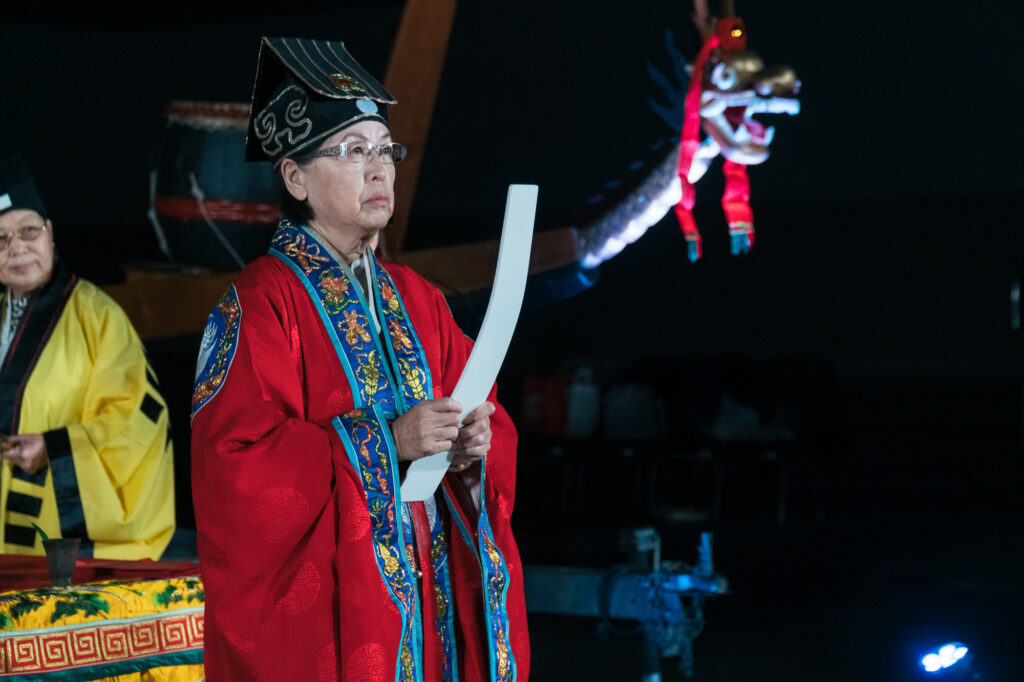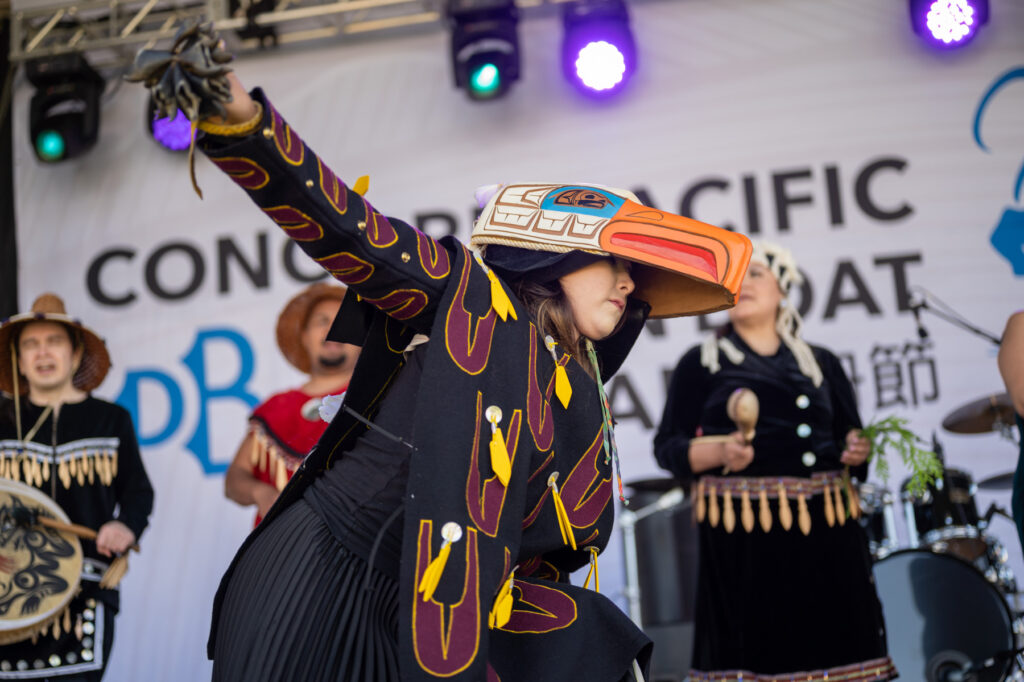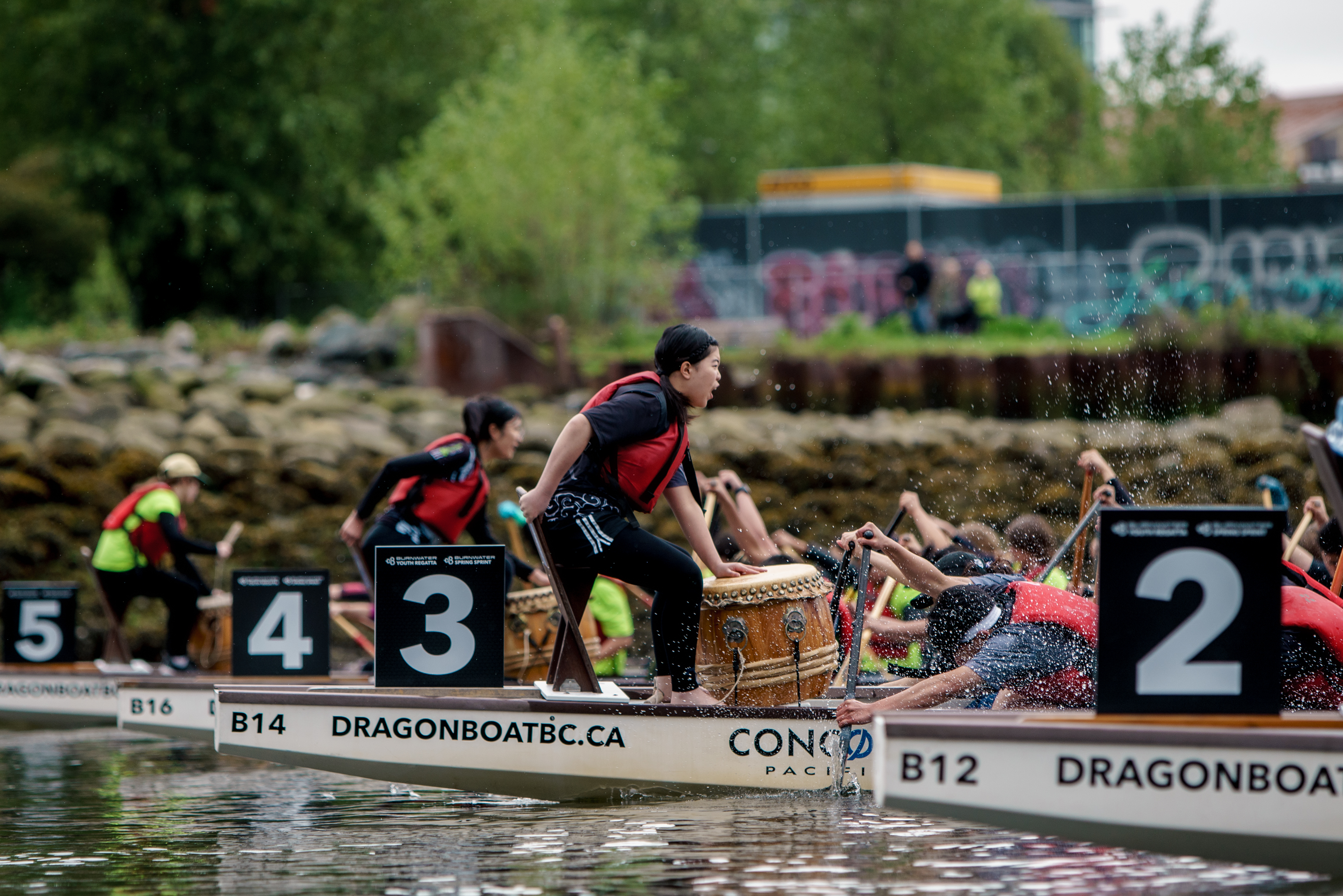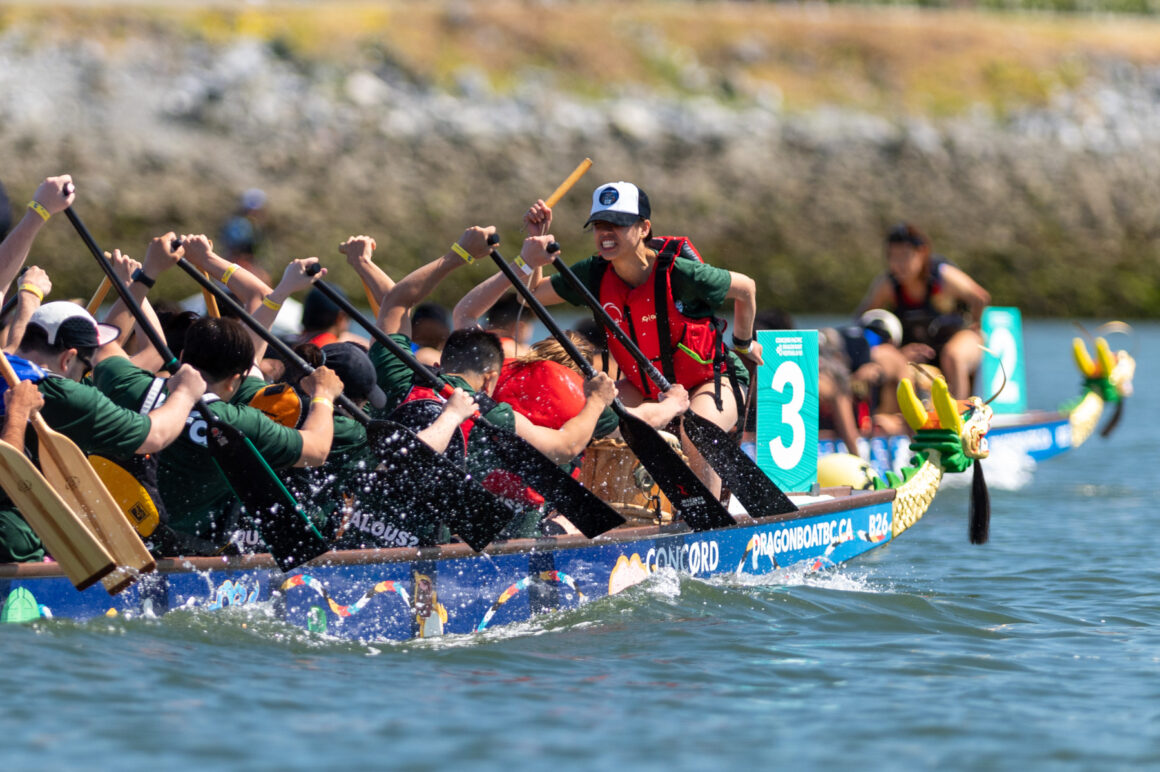For Part 1 of this year’s Asian Heritage Month series, guest author Auston Chhor 蔡健俊 sits down with Dominic Lai 黎憲榮, Senior Development, Marketing, and Operations Director at Dragon Boat BC.
I’m sitting across from Dominic Lai in his office tucked away on the second floor of a historic building in the heart of Vancouver’s Chinatown. We’re perched above the bustle of the busy shopping street below, the rain falling outside in short bursts. Dom is many things–a coach, a graphic designer, a recipient of a Master’s degree in political science–but most will know him as one of the main faces of Dragon Boat BC. At any of the several festivals the non-profit organizes each year, you can spot him running the show from the ground: walkie-talkie in one hand and megaphone in the other, somehow directing traffic, setting up a tent, and making sure the next act is on stage all at the same time.
I met with Dom in late-April to pick his brain over jasmine tea about the intersections between dragon boat, Chinese culture, and the broader Asian identity. Dragon boat is inseparable from its rich cultural history, its roots beginning thousands of years ago when villages held ritualistic boat races to honour the mythical dragons who would bless their rice paddies with rain.
Dom thinks that this unique heritage is something worth both preserving and updating to fit the world that we live in today. As one of the world’s oldest sports, dragon boat has undergone immense changes since its inception. Strict traditions that had once limited participation in the sport have been set aside; where in the past paddling had been restricted to young able-bodied men, these days at a single race you might see a team of schoolchildren, seniors, ex-Olympians, and breast cancer survivors all cross the same podium.
The sport looks very different today, yet its foundational values–togetherness, hospitality, teamwork, and trust– still play an integral role in guiding dragon boat into the modern era. The décor of Dragon Boat BC’s office speaks for itself, the shelves are adorned with everything from a centuries-old handmade wooden paddle to a pair of limited-edition dragon boat themed adidas sneakers.

Culture needs to be alive.
“If you lock culture in and define it as tradition, you’re just cosplaying something that happened hundreds of years ago,” Dom says. “Culture is like jazz music. A great musician will play a standard written in the 20’s and take what’s there and riff off it, applying their own twist on the melody while still respecting the original composer’s intent.”
But to truly appreciate those riffs and twists, you have to know their roots.
At their core, dragon boat festivals have not changed much since they began in China’s Pearl River Delta. They’re gatherings of people from far and wide, all coming together to compete, celebrate, and share in the hospitality of the host village. Local music, art, and storytelling were important parts of these gatherings, and they are essential components in Dragon Boat BC’s festivals today.
In the sea of carbon fiber paddles, quick-dry gear, and high-five lines, there are also cultural pavilions, local artists, and storytelling circles. At the season’s largest regatta–the Concord Pacific Dragon Boat Festival–the culture of the Indigenous host nations takes centre stage, something that Dom is adamant must be an integral part of festivals.
“As Chinese people in Vancouver we owe a lot to the host nations,” he tells me. “There is a lot of history between the first Chinese settlers in Vancouver and the Musqueam, Squamish, and Tsleil-Waututh peoples. Without their generosity and support from the very beginning, we wouldn’t be here today. ”
“Dragon boat festivals have always been about learning about the culture, traditions, and stories of the host village,” he adds. “It therefore makes sense that as festival organizers in Vancouver we provide a platform for the host nations to share their culture with paddlers. To me, that’s as true to the values of the sport as you can get.”

A place for transformation.
In 2022, Dragon Boat BC chose to locate its new office in the heart of Vancouver’s Chinatown, and it’s no coincidence. With a deep desire to reconnect the Festival back to its roots in the neighbourhood, their new home on the 100-block of East Pender provided the space to dream history and futures into one place.
Like many Chinatowns across the continent, the often-jarring tensions between new and old are in full view. In the past year, two take-out restaurants that have anchored the neighbourhood have shut down, one due to a catastrophic fire, the other falling victim to rent hikes. Over time the traditional herbal shops, bakers, and grocers have slowly been replaced by bars, trendy cafes, and modern restaurants.
I’ve lived within steps of a Chinatown in two different cities, and the deep changes that have occurred within them have sometimes felt like an attack on my identity as a Chinese person. These neighbourhoods are the physical manifestations of our histories on these lands; protecting these places not only provides opportunities to interact with culture, but also serve as touchpoints to understand histories of injustice–look no further than the Chinese Exclusion Act, passed 100 years ago this year, which directly shaped the community as we know it today.
But what happens when we end up over-protecting things just because they are old? As Dom argues, culture is something that is ever-changing, it’s shaped by people who take old standards and run with them, experimenting, discovering, and creating along the way. Taking into consideration the real concerns of gentrification, Chinatowns should have the right to grow and change–neighbourhoods are living, evolving places, not museums.
In Sḵwx̱wú7mesh Sníchim, the lands that Dragon Boat BC operates on are called Sḵwachàys. The marshy lands were a frequently travelled pathway for the many local Indigenous communities to take their canoes between what are now known as False Creek and Burrard Inlet, and regarded as a place of transformation. Linking two deltas, half a world away, a shared reverence and deep respect for the water.

Auston Chhor is a biologist and writer interested in climate justice, green urbanism, and science communication. His work has been published by The Tyee, Canada’s National Observer, Science World, and Ricepaper Magazine.



